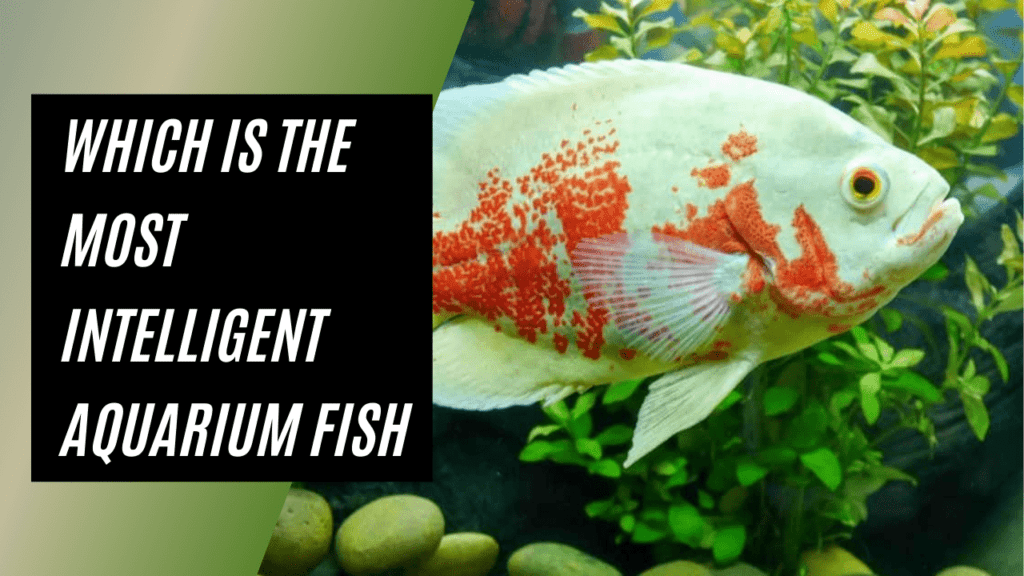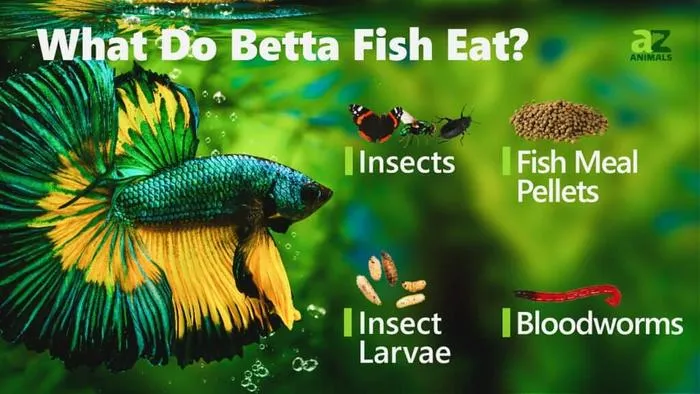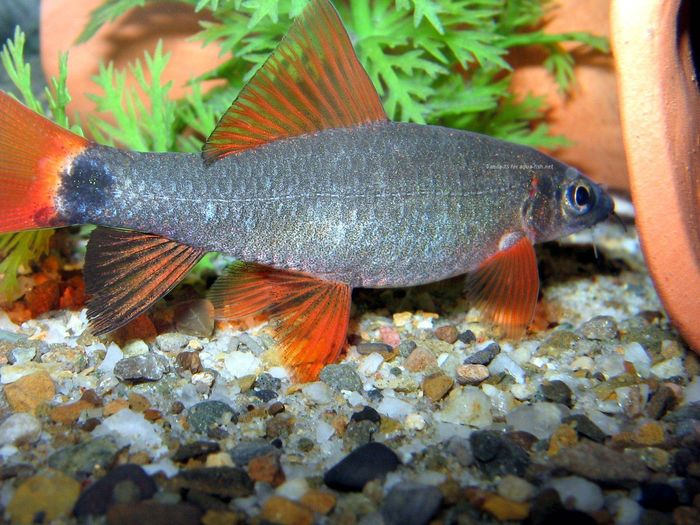
There has been speculation that Oscar fish are among the most intelligent fish in the aquarium hobby. Many people have claimed they display many intelligent behaviors, including being excited to swim close to the glass whenever the owner passes by to feed them, redesigning their aquarium to their taste (including pushing around objects they don’t like), and even distinguishing people by sight!
It may seem rather ridiculous, but a fish with its three second memory will never be bored swimming round its bowl since when it circles back around, it already has forgotten where it came from.
Did you ever imagine that the fish you kept was capable of much more than you thought? What if they were judging you in the same way that you watched them?
/GettyImages-992089934-46dfbbd36d864ed58740d211f788653a.jpg) Oscar Fish Species “/>
Oscar Fish Species “/>Aspects of Intelligence – How is Fish Intelligence Measured?
The following factors are used to measure the intelligence of a fish
- Problem-Solving
- Research Observations and Experiments
- Memory
- Learning
- Recognizing Symbols
Problem Solving
Solving problems requires an exceptionally high level of cognitive ability in both humans and animals.
In a new study conducted by scientists at the University of St Andrews, scientists have discovered that some fish are able to pool their experiences to solve problems collectively.
Despite the fact that individual fish might only have a little bit of information about their surroundings, they might have different, but complementary information about a particular problem, such as knowledge of foods but not how to access them, or just useful knowledge without knowing where to find them in the first place.
Scientists at the School of Bergen conducted a series of experiments with sticklebacks to determine if leaders could allow groups of animals to pool their knowledge in order to solve problems collectively.
They published their results on the Nature Ecology & Evolution website in Nature Ecology & Evolution, which could have implications for businesses and even bio-inspired swarm robotics.
Research Observations and Experiments
In addition to their capability to solve problems completely on their own, fishes have also been shown to be exceptionally intelligent in observing their environment.
Today I sat for a long time in front of the AQ and meditated on what is going on in these little heads.
Two observations amazed me: an almost newborn catfish, approx. 1 cm long, quickly fled from the threadfish and hid on the tail fin of a large catfish. From there to the next root.
The second: The cichlid (Steatocranus cas.) Removes all the snails from its self-dug cave under a root.
I forgot a third one: I recently took a one-eyed copper tetra from the OBI, first it was very bullied, then it was in top form and now accepted in the swarm.
Well, I ask myself what is instinct and what is learned behavior, and one can speak of a certain intelligence in fish, although of course the question still arises as to how this should be defined.
Another best example, yesterday there was zucchini for my catfish. This morning I got the well-shredded food from the aquarium. A short time later one of the catfish comes and is visibly shocked that the food is gone now and is looking for it.
One of the best examples of intelligence is that the catfish remembered when the zucchini was served, just yesterday when one of the fluorescent tubes went out.
Today the tube goes out and the catfish comes “flown” to the feeding station to find out that it couldn’t be either.
To what extent this topic is observable or remains philosophical I don’t know. But I don’t want to deny the Pisces a certain intelligence.
In a study titled “The Cognitive abilities of ornamental fish“, a professor from the University of Sydney determined that fish are capable of learning.
There, ornamental fish had to use simple colored signs to make their way through a labyrinth, where, of course, food was waiting at the end.
However, I would interpret the escape behavior of young fish and also the cleaning of the perch cave as more instinctive behavior.
The juvenile fish is already given in the DNA to hide from predators and the perch knows just as well that the snails can be dangerous to its spawn, and thus also to its successor.
In both cases, this behavior can guarantee the continued existence of a species in nature.
The fact that a single tetra is initially excluded from an existing group seems to me to be part of social behavior.
Since it is in the interest of the group to strengthen itself through a new addition and not to weaken it, the group of course initially checks whether the newcomer can also fulfill this.
Bringing in diseases, for example, could have disastrous consequences for the whole group in nature and would therefore be counterproductive to the actual goal.
Memory
They are as intelligent as they appear and, in many crucial areas of cognitive ability, their abilities are superior to those of ‘higher’ vertebrates including non-human primates, including humans.
Fish have a long-term memory that helps them hold complex social relationships in place. Their spatial memory allows them to make mental maps of their watery surroundings, using cues such as polarized light, sounds, odors, and visual landmarks.
As compared to other vertebrates, fish have better sensory perception and cognitive abilities.
In addition, a scientific review presented at the Australian Veterinary Association disproved the myth that the goldfish have three-second memories – compared to the human, goldfish have an impressive memory and problem-solving ability.
Here are a few more fascinating facts regarding fish intelligence
In order for fish to communicate, they use squeaks and whines that are only audible with specialized instruments.
The Lionfish also communicate by means of “sign language” or Morse code. Lionfish use the rows of fins on their backs to communicate with other fish, telling them to join them on a hunt.
Among coral groupers, there are tiny fish called moray eels that alert smaller fish, like coral groupers, to prey fish hidden in a crevice by pointing their noses toward the prey fish. They obey by shaking their bodies from side to side.
In much the same way that cats weave in and out of your leg as they feel your pulse, they like to be physically in touch with other fish.
In a study by Phil Gee of the University of Plymouth in the U.K., fish were trained to collect food by pressing a lever at specific times, showing they can tell time.
Some owners cultivate well-kept gardens, weeding out the types that don’t taste good and encouraging the growth of tasty algae.
A few fish, such as catfish and cichlids that are known to carry their eggs on leaves and stones, have been observed building nests on the seafloor in which to help their young grow.
The male sand gobies, also known as sand gobies, are tiny fish that live along the European coast. They play Mr. Mom, creating fresh, oxygenated water and shielding the nests with their fins.
The bottom-weighted thermometer was used by cichlids to play with it. Scientists observed that they would intentionally knock it over just to see it bounce back up again.
Generally, clients of fish cleaning companies feel free to bite other customers, so to compensate for these bites they back-rub larger, stronger fish.
Some species of fish do use tools. The blackspot trunkfish, for example, can be seen smashing a clam with its tusks so the shell breaks. Pearlfish use oyster shells as speakers to amplify the volume of their communications.
Microsoft found that goldfish have longer sustained attention spans than humans, since they can concentrate for nine seconds compared to eight seconds for humans.
We feel that fish are interesting and intelligent animals who, like our dogs and cats, deserve to be respected in the same way that we do.
Learning
Throughout their life in the wild, fish are forced to learn new things, as we see with predatory fish.
At first, when they try to catch an animal, it may take them awhile to figure out how to overcome the prey’s defenses to eat it.
Young predators may take some time to learn how to eat and crush a snail’s shell but may do so with experience to rapidly attain the nutritious meat inside.
Pet owners who have taken their dogs or cats to the vet may observe how anxious they are and how they try to avoid the vet, but it is much harder to assess a pet fish.
Wouldn’t things be different if your fish understood more than your cat or dog? Can your fish manage memories, cooperate, recognize people, and use tools since they’re not living among us?
Well, it may surprise you to learn that research has shown that fish are capable of all of this and more .
There are many similarities between fish and all other vertebrates, including their brains and the way they process information as it is perceived by our fluffy pets. And this holds for all teleost fish, including your average goldfish and betta.
Recognizing Symbols
Fish were placed in mazes marked with different symbols to navigate through a maze in an experiment.
In order to find food, the fish must use the correct symbol. After learning how to travel, the fish must only use this symbol.
Training Your Fish
A fish can be trained to expect food with a sound, a clear target, or in the presence of an owner. If of course, the fish does not get the food they expect, they begin hunting for other prey.
You’ll find that your fish learn quickly when you use a signal to let them know that feeding time is approaching quickly, and will even come to the signal even if food is not presented to them.
Regards: Dustin’s Fish Tanks
How to Teach Your Betta Fish Tricks
Train a betta can be fun for the whole family and it’s surprisingly easy. In addition to keeping your betta active, it keeps them from being lonely and it keeps the betta from becoming disinterested.
It just takes a little practice and patience to teach him tricks like following your finger, eating from your hand, swimming through a hoop, playing soccer, and even jumping out of the water and coming up to be petted.
Food is the most powerful way to remind your fish to behave in a positive way. Just be sure not to overfeed your betta, especially if you have a small aquarium.
Fish have generally been identified as being intelligent when attempting to make their way through a maze. Myth Busters did an episode where goldfish had to swim under a series of rings as if trying to find food.
However the design of the cage was limited, repeated tests showed the fish could locate the food treat after passing through a series of rings within less than one minute.
It was shown that rainbowfish could recall their escape sequence for up to a year after being removed. Keep this in mind when your two-year-old asks where the snacks are for the millionth time.
In terms of fish intelligence, we have only what we perceive to be “intelligence.” Human anthropomorphizing animal emotions can be problematic; it is much easier to hug and cuddle them when you are surrounded by them.
Although it doesn’t have the fuzzy, scaly, slimy appearance of a dog, fish can still be wonderful pets and do the same silly tricks you teach your dog, just in a slightly modified way for an underwater environment.
Watching your fish swim around its tank, and wondering if it can figure where the fish is, your fish may be wondering the same thing for you.



